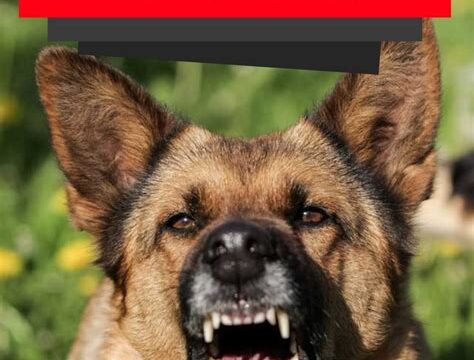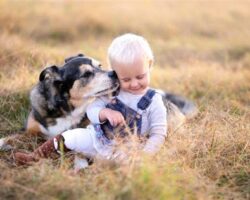Learn to identify, understand, and address aggression in dogs. Discover effective training methods for specific breeds and maintain a well-trained dog.
Identifying aggressive dog breeds
Identifying aggressive dog breeds can be important for anyone considering bringing a new pet into their home. While all dogs have the potential for aggression, certain breeds are known for being more prone to this behavior. It’s important to note that aggression in dogs is not solely determined by breed, but genetics and environmental factors also play a significant role. However, being aware of which breeds are more likely to display aggressive tendencies can help owners understand the potential challenges they may face.
Some aggressive dog breeds include the Pit Bull, Rottweiler, German Shepherd, Doberman Pinscher, and the Siberian Husky. These breeds are known for their protective instincts and can be territorial, which may lead to aggressive behavior if not properly trained and socialized. While it’s important to remember that aggression is not a guarantee in any specific breed, it’s worth noting that these breeds may require extra attention and careful training to prevent aggressive tendencies from developing.
It’s crucial for potential dog owners to thoroughly research and understand the characteristics of the specific breeds they are considering. By being knowledgeable about the potential for aggression in certain breeds, owners can take proactive steps to provide the proper training and socialization needed to prevent aggressive behavior from arising. Additionally, early intervention and consistent training are key factors in helping any dog develop into a well-behaved and balanced companion.
Understanding the causes of aggression
Aggression in dogs can be caused by a variety of factors, and understanding these causes is essential in addressing and preventing this behavior. One of the primary causes of aggression in dogs is fear or anxiety. When a dog feels threatened or anxious, they may react with aggression as a way to protect themselves. This can be triggered by a variety of stimuli, such as loud noises, unfamiliar people, or other animals.
Another common cause of aggression in dogs is frustration. Dogs that are not properly exercised or stimulated can become frustrated, leading to pent-up energy that may manifest as aggressive behavior. It’s important for dog owners to provide their pets with plenty of physical and mental exercise to prevent this type of aggression.
Genetics and breeding can also play a role in a dog’s predisposition to aggression. Some breeds are more prone to aggressive behavior due to their genetic makeup, and it’s important for owners to be aware of these tendencies and take proactive steps to manage and train their pets. Additionally, past experiences and socialization can impact a dog’s behavior. Dogs that have had negative experiences or have not been properly socialized with other animals and people may exhibit aggression as a result.
Importance of proper training
Aggressive Dog Breeds That Need Proper Training
Proper training is crucial for all dog breeds, particularly those that are prone to exhibiting aggressive behavior. The importance of proper training cannot be overstated, as it plays a significant role in shaping a dog’s behavior and preventing potential aggression.
When a dog receives adequate training, it learns how to socialize with humans and other animals, follow commands, and exhibit appropriate behavior in various situations. This not only creates a harmonious relationship between the dog and its owner but also reduces the likelihood of the dog acting aggressively towards others.
Furthermore, training provides mental stimulation for dogs, preventing boredom and frustration, which are common triggers for aggressive behavior. It also instills a sense of discipline and obedience, allowing the owner to have better control over their dog’s actions and reactions.
Effective training methods for aggression
When it comes to dealing with aggression in dogs, it’s important to use effective training methods to ensure the safety of both the dog and those around it. One of the most crucial aspects of addressing aggression is to understand the root cause of the behavior. Once the cause is identified, appropriate training methods can be implemented to help the dog overcome its aggressive tendencies.
Positive reinforcement is a key component of effective training methods for aggression. This involves rewarding the dog for displaying desirable behaviors, which can help to reshape its behavior over time. Additionally, desensitization and counter-conditioning are also training methods commonly used to address aggression. These involve gradually exposing the dog to the trigger of its aggressive behavior in a controlled and positive manner, to change its response.
It’s essential for dog owners to work with a professional dog trainer or behaviorist who has experience in dealing with aggression. A professional can provide guidance on the most effective training methods for the specific type of aggression the dog is displaying. Through patience, consistency, and the proper training methods, a dog’s aggressive behavior can be successfully addressed, leading to a happier and safer pet.
Behavioral changes through training
Proper training can lead to significant behavioral changes in dogs, especially those known for aggression. By using positive reinforcement, consistency, and patience, dog owners can effectively modify their pet’s aggressive behavior. This process involves teaching the dog to replace aggressive reactions with more acceptable responses, and can result in a calmer, more obedient pet.
One of the most common behavioral changes seen in aggressive dog breeds through training is a reduction in reactive behavior. With consistent training and proper socialization, dogs can learn to react less aggressively to triggers such as other animals, loud noises, or unfamiliar people. Training can also help reduce territorial aggression and possessiveness, making the dog more comfortable and well-behaved in various situations.
Additionally, through training, aggressive dog breeds can become more responsive to commands and cues from their owners. This increased obedience and responsiveness not only makes the dog easier to manage and control, but also fosters a stronger bond between the pet and its owner. With continued training and reinforcement, these behavioral changes can be long-lasting and significantly improve the dog’s overall behavior and temperament.
Addressing aggression in specific breeds
When it comes to addressing aggression in specific breeds, it’s important to understand that some breeds may have a predisposition to aggressive behavior. This can be due to genetics, upbringing, or inadequate training. It’s crucial to recognize that aggressive behavior in dogs can be a result of various factors, and it’s not solely based on breed stereotypes.
It is crucial to address aggression in specific breeds by first acknowledging that each dog is an individual with unique needs and characteristics. By understanding the specific breed’s temperament, history, and potential triggers for aggression, dog owners can better address and manage their pet’s behavior.
Proper training and socialization are key to addressing aggression in specific breeds. Training methods should be tailored to the individual dog’s needs and should focus on positive reinforcement. Consistency, patience, and understanding the root cause of the aggression are essential in effectively addressing this behavior in specific breeds.
Maintaining a well-trained dog
Aggressive Dog Breeds That Need Proper Training
Once you have successfully trained your dog to overcome any aggressive behaviors, it is crucial to maintain their training to ensure long-term success. Consistency is key when it comes to maintaining a well-trained dog. This means establishing and sticking to a daily routine that includes regular exercise, feeding, and training sessions. By maintaining a consistent schedule, you can help prevent any regression in your dog’s behavior.
Additionally, it’s important to continue reinforcing your dog’s training through positive reinforcement. Use treats, praise, and affection to reward good behavior and show your dog that their training is ongoing. This will help keep your dog motivated and engaged, as well as strengthen the bond between you and your pet.
Regularly engaging in mental stimulation activities with your dog is another vital aspect of maintaining a well-trained pet. This can include introducing new training exercises, interactive toys, and games that challenge your dog’s mind. Keeping their brain active will prevent boredom and potential behavioral issues that may arise from lack of mental stimulation.
Frequently Asked Questions
What are some examples of aggressive dog breeds?
Some examples of aggressive dog breeds include Pit Bulls, Rottweilers, Doberman Pinschers, and German Shepherds.
Why do aggressive dog breeds need proper training?
Aggressive dog breeds need proper training to control their behavior, socialize with other dogs and people, and prevent potential aggression towards others.
What are some common training techniques for aggressive dog breeds?
Common training techniques for aggressive dog breeds include positive reinforcement, socialization, desensitization, and obedience training.
How can proper training help decrease aggression in these breeds?
Proper training can help decrease aggression in these breeds by teaching them how to interact with others in a positive way and how to respond to commands from their owner.
What are the potential risks of not training aggressive dog breeds?
The potential risks of not training aggressive dog breeds include aggressive behavior towards other pets or people, legal issues, and safety concerns for the dog and its owner.
How long does it take to properly train an aggressive dog breed?
The time it takes to properly train an aggressive dog breed varies depending on the individual dog, the severity of its behavior, and the consistency of training. It may take months or even years to fully train an aggressive dog breed.
Is it possible to rehabilitate an aggressive dog breed through training?
Yes, it is possible to rehabilitate an aggressive dog breed through proper training, patience, and dedication from the owner. However, it’s important to seek professional help if the aggression is severe.





